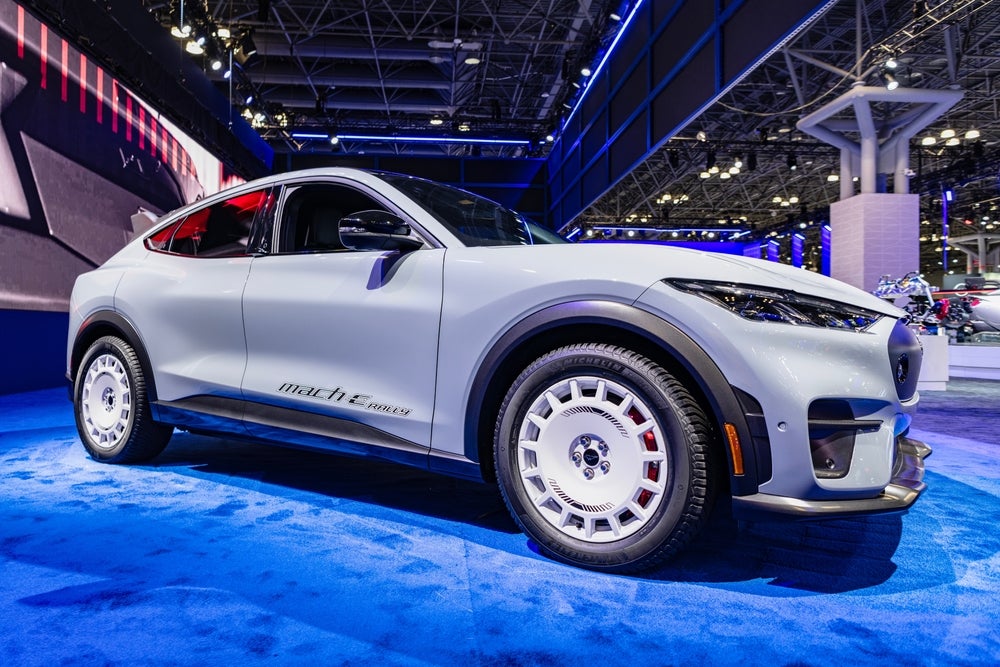The US electrified vehicle market has transformed since the Tesla Model 3 launch in 2017. The explosive growth over the past six years led legacy automakers to invest billions in engineering Electric Vehicles to compete with Tesla’s offerings. Fast forward to today, and compelling models are being launched by the legacy OEMs, supporting the Battery Electric Vehicle (BEV) market while Tesla sales stagnate in the first half of 2024. The following sections will highlight winners and losers on an overall performance basis.

Winner: Ford Mustang Mach-E
The electric Mustang coupe has been on sale since 2020, increasing its sales year-over-year. The first half of 2024 proved no different, with Mach-E sales volume up 58% versus the prior year, as attractive finance incentives and lease offers moved the model to the number 3 spot behind Tesla’s Model Y and Model 3. Ford kept pricing in line with the Model Y, continuously undercutting entry-level prices and lease rates. Ford also expanded the trim lines this year with a high-performance Rally variant boasting a performance upgrade to 480 horsepower and 700 lb.-ft. of torque.
Loser: Fisker Ocean
Fisker faced a similar demise to several fellow startups soon after launching the Ocean, its first series production model. The company filed for bankruptcy protection in June of this year after selling fewer than 10,000 units in total. The barriers to entry in the automotive sector have always been a high hurdle but for countless newcomers looking to make a statement in the all-electric whitespace, the challenge to move from building a few engineering prototypes to mass production for paying customers is enormous. Fisker offloaded its remaining inventory of Oceans at a deep discount to a New York-based ride-hailing company as part of the bankruptcy proceedings.
Winner: Kia EV9
Kia launched the first mass-market full-size 3-row electric SUV late last year with sales reaching comparable levels to the redesigned Toyota Sequoia. Kia priced the EV9 in the US$55,000 to US$74,000 range, undercutting Rivian’s more premium-focused R1S model, while still including many creature comfort features. The brand will continue offering a US$7,500 incentive on the imported EV9 to match the federal tax credit allowance until the model fully phases in domestic production in West Point, Georgia. The 3-row SUV will face competition later this year when VW launches its imported Microbus ID. Buzz at comparable price points.
Loser: Tesla Cybertruck
The last new model launch as polarising as the Cybertruck may have been the Pontiac Aztek nearly 25 years ago. Design aesthetics aside, the electric pickup has been plagued with recalls and may be facing a serious design flaw concerning the tow hitch receiver, which could separate from the vehicle’s aluminium frame while towing. Values on the used car market continue to decline sharply and waitlist buyers are turning down their reservations on the six-figure-priced all-wheel drive (AWD) variant as many expected a vehicle costing well under US$60,000. The hype around the vehicle has fallen away rapidly since its release as the AWD trims can now be ordered and delivered within the same month. There will be renewed interest when the lower-priced rear-wheel drive (RWD) model becomes available in 2025, but the current output is severely limited as Tesla troubleshoots the 4680-battery dry-coating process.
Winner: Hyundai IONIQ 5
Like the Mustang Mache-E, the IONIQ 5 has been on sale for several years and remains a popular choice in the compact SUV segment, increasing its sales by 37% in the first half of this year. The brand launched its performance ‘N’ variant this year, a direct competitor to the Mach-E Rally, as it targets the enthusiast customer base looking for a greener option. Hyundai is also offering a US$7,500 cash incentive to match the federal tax credit until the model localises production at its under-construction Metaplant in Ellabell, Georgia.
Loser: Mercedes-Benz EQ-family
Mercedes-Benz has five EQ models on sale: EQB, EQE, EQE SUV, EQS, and EQS SUV. Sales of all five models were down considerably—by a combined 36% – in the first half of the year. The company has now revised its electrification strategy, pulling back on its BEV ambitions as it pivots to a flexible powertrain strategy. Next-generation all-electric vehicles will drop the EQ sub-branding and instead treat the variants as a powertrain option rather than as a different model. To spur demand, the automaker is offering a US$7,500 lease bonus across all EQ models, matching incentives from other brands, when their customers cannot take advantage of the government subsidies.
In terms of sales volume in the first half of 2024, Tesla’s Model Y and Model 3 were well ahead of the pack, achieving a 47% share of the BEV market. However, it is difficult to advocate a positive sentiment for this year’s performance given that sales volume from both models was down 9% in the first half of the year. The 2023 price cuts spurred strong demand leading to a larger bank of sales as the company targeted a lofty 50% growth rate goal. The segment is slowing as many early adopters already purchased their choice of BEV while mainstream buyers remain more reluctant to make the switch. Automakers will continue launching new products, and filling out their electric portfolios, however, a renewed focus on hybrids and plug-in hybrids will take the spotlight from BEVs in the coming years.
Matt Lucki, Senior Analyst, Americas Powertrain Forecasts, GlobalData
This article was first published on GlobalData’s dedicated research platform, the Automotive Intelligence Center.







